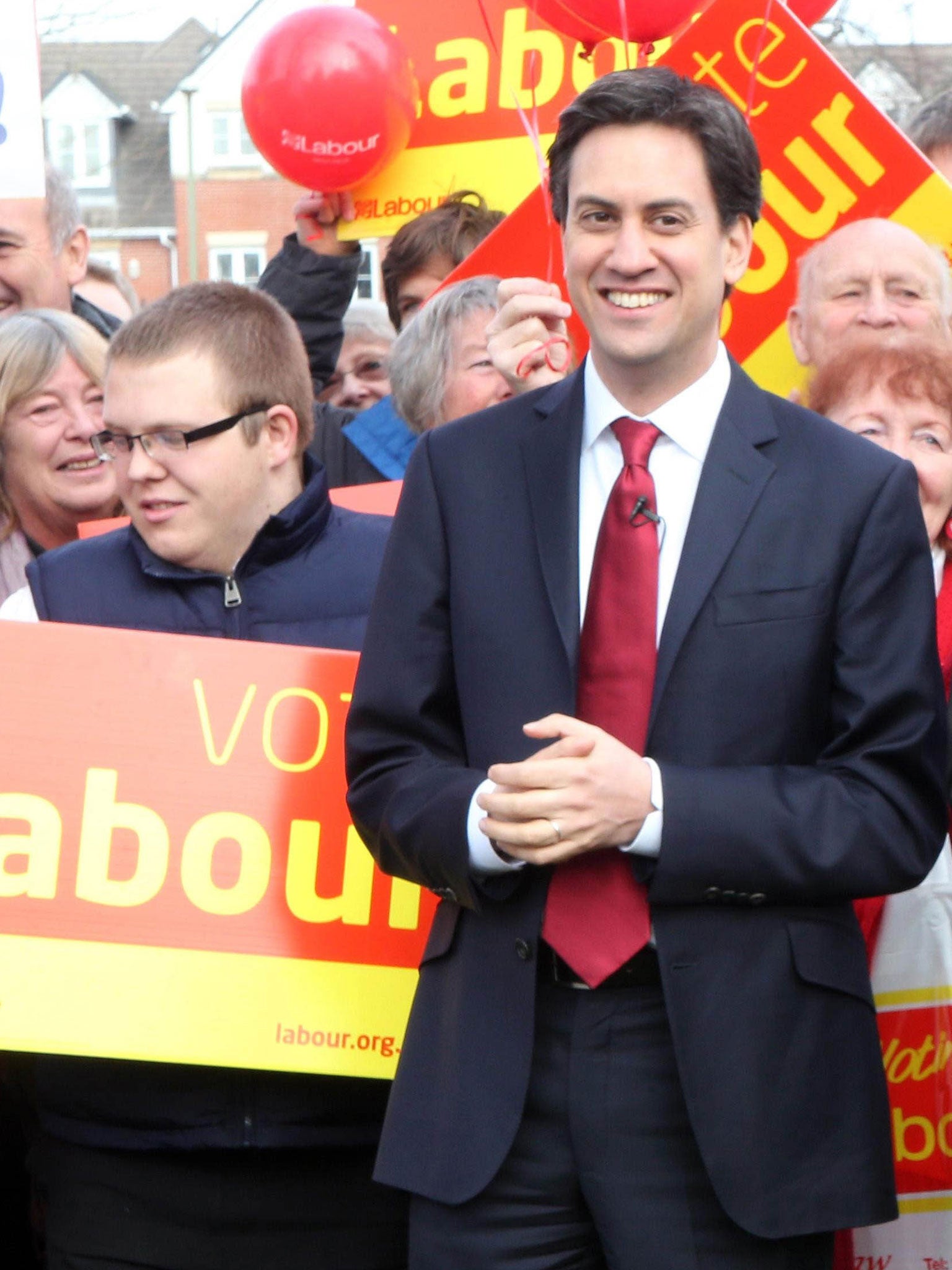Miliband leadership under fire as Conservatives close gap on Labour in the polls
Party insiders express fears over lack of direction under embattled leader

Your support helps us to tell the story
From reproductive rights to climate change to Big Tech, The Independent is on the ground when the story is developing. Whether it's investigating the financials of Elon Musk's pro-Trump PAC or producing our latest documentary, 'The A Word', which shines a light on the American women fighting for reproductive rights, we know how important it is to parse out the facts from the messaging.
At such a critical moment in US history, we need reporters on the ground. Your donation allows us to keep sending journalists to speak to both sides of the story.
The Independent is trusted by Americans across the entire political spectrum. And unlike many other quality news outlets, we choose not to lock Americans out of our reporting and analysis with paywalls. We believe quality journalism should be available to everyone, paid for by those who can afford it.
Your support makes all the difference.Labour’s lead over the Conservatives has more than halved in just four months amid anxiety in the party’s ranks over Ed Miliband’s leadership strategy, according to the latest poll of polls for The Independent.
The finding comes at the end of a difficult month for Mr Miliband, who was first assailed by the Tories over his party’s union links and then faced anger from union chiefs over his plans to reform them.
It also coincides with criticism that senior frontbenchers have failed to take a more aggressive approach to the Coalition as Westminster enters its long summer recess.
A weighted average of July’s polls shows Labour’s lead over the Conservatives has tumbled from 11 points in March to just five points. It puts the Tories on 33 per cent, Labour on 38 per cent and the Liberal Democrats and the UK Independence Party on 11 per cent each.
The last time the gap between the two largest parties was narrower was in March 2012, shortly before George Osborne’s “omnishambles” Budget triggered a slide in Tory fortunes.
John Curtice, Professor of Politics at Strathclyde University, who compiled the poll of polls, said Labour should be worried that Mr Miliband’s personal ratings were slipping and that an emerging “faint scent of economic optimism” could benefit the Coalition parties.
“There must be a concern that having failed to convince the electorate in the last two years that they could provide a better alternative government, Labour could now find the Conservatives are able to claw themselves back into serious electoral contention,” Professor Curtice said. “Mr Miliband’s need to demonstrate he can lead his party to victory is becoming urgent.”
Labour moved yesterday to try to turn the political spotlight on a theme it believes resonates with voters – the steady decline in living standards as pay lags behind price rises.
It released research claiming that working people were on average £1,350 a year worse off than three years ago and would have lost £6,600 by the time of the next election.
Chris Leslie, the shadow financial secretary to the Treasury, claimed the Coalition had “not got their finger on the pulse of what the country is feeling”.
But in response to recent criticism of the leadership’s strategy, he acknowledged that there were jitters within the Parliamentary Labour Party (PLP) over the general election which is less than two years away.
He said: “Everybody clearly in the PLP is keen and anxious to make sure we win the next election. One of the prerequisites for that is exposing what’s happening in the economy.”
He insisted the party would keep hammering away at its economic message in the coming months and said Labour planned to hold a summit on the increasing use of zero-hours contracts in a few weeks’ time.
Writing in The Independent, one Labour backbencher argues that the party still needs to spell out a “compelling case as to why Britain would be better off with Labour”.
Geraint Davies, the MP for Swansea West, said it had to confront Tory charges that Labour “messed up the economy”. He said: “Not rebutting this charge makes us look like a shamefaced schoolboy admitting responsibility by omission. And if we don’t rebut the accusation, it will simply amplify as the election approaches.“
His comments came after George Mudie, a former minister, complained that Mr Miliband was “hesitant, confused and still trying to find himself” and the MP Graham Stringer accused the shadow Cabinet of “slumbering” and being “almost invisible in repose”.
A former supporter of Mr Miliband told the Financial Times yesterday: “The Australians [the ruling Australian Labor Party] have changed their leader and have surged from minus 12 in the polls to plus two. It’s still not clear what [he] stands for, what he wants to do if he ever gets into Downing Street. Morale is bad.”
Today’s poll of polls, an average of the July surveys by ComRes, ICM, Ipsos MORI and YouGov, also suggests that Ukip could have peaked in popularity after its impressive successes in the local elections in May.
Professor Curtice said the Tories could be profiting most from the slight fall in support for Nigel Farage’s party. About 13 per cent of Conservative voters at the last election now say they would back Ukip at the next poll, a fall of eight points since the party’s peak in May.
Join our commenting forum
Join thought-provoking conversations, follow other Independent readers and see their replies
Comments